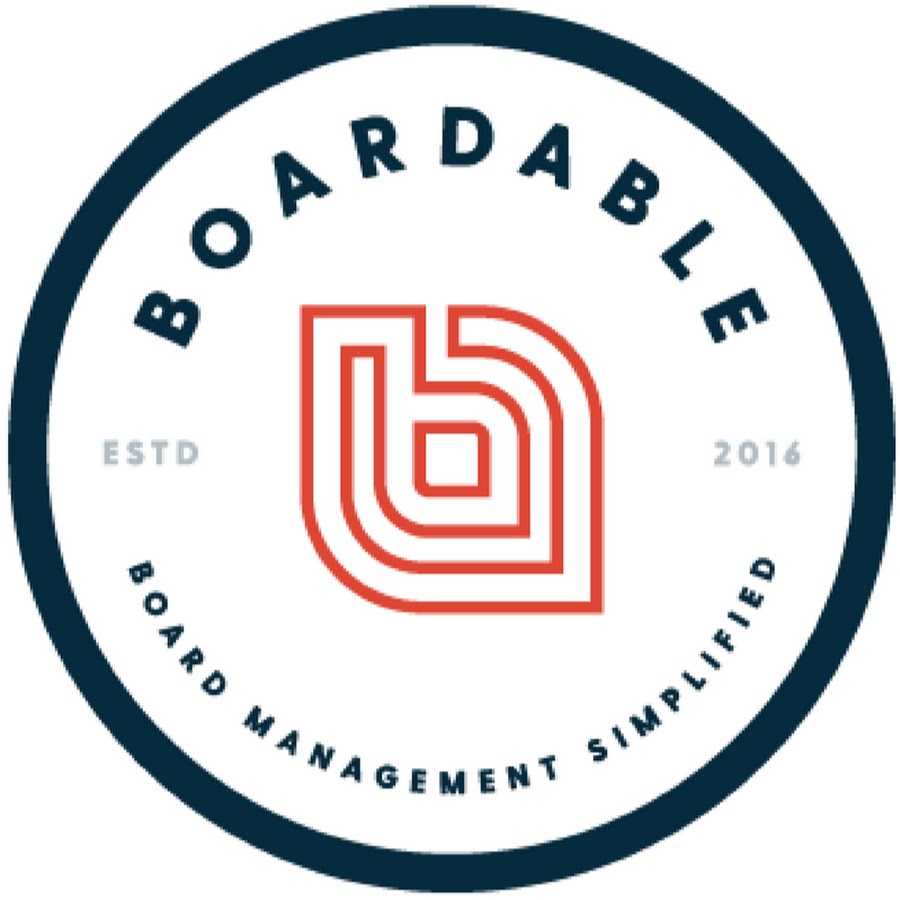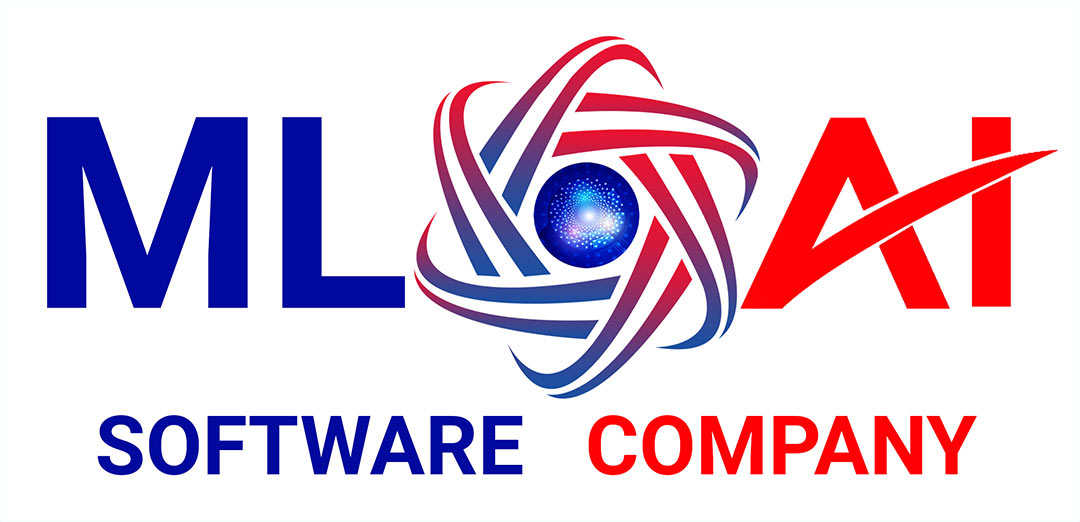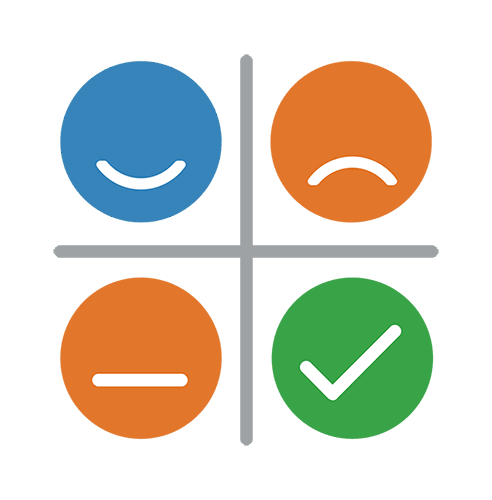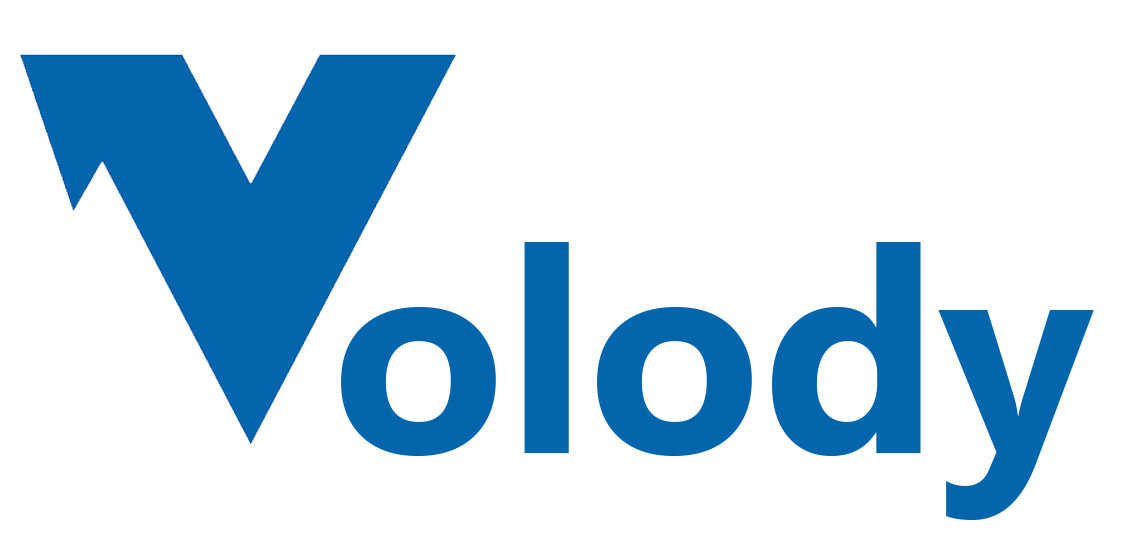Yes, most meeting management software is compatible with different devices and platforms. This facilitates seamless collaboration and communication among team members, regardless of their location or preferred device. These applications are frequently web-based and may be accessed from any internet-connected device, such as computers, tablets, or smartphones. In addition, some meeting management software has specific apps for iOS and Android devices, making it easier to use.
List of 20 Best Meeting Management Software
Welcome to 500Conference is a AI-powered video conferencing tool that revolutionizes collaboration and connectivity. Our secure virtual platform enables you to effortlessly share screens, chat in real-time, record meetings, and exchange files from an...Read More 500Conference
Granicus is a top-notch cloud-based platform, designed to enable government agencies to enhance communication, engagement, and efficiency. With a proven track record of serving more than 6,000 organizations, Granicus is committed to modernizing publi...Read More Granicus
Amazon Chime – solution for effortless communication and collaboration. Created by Amazon Web Services (AWS), this all-in-one online meeting service provides secure video and audio meetings, chat, and screen sharing features. With a focus on s...Read More Amazon Chime
MeetingBooster - your ultimate solution for highly productive meetings. With easy agenda creation, action item monitoring, and follow-up action assurance, streamline your meetings like never before. Nurture collaboration and ensure unity among team m...Read More MeetingBooster
Chanty is a Team Communication Software for Startups and Enterprises. Built specifically for Mac users, Chanty provides a complete range of features including File Sharing, powerful Search capabilities, and convenient Group Audio/Video calls. Simplif...Read More Chanty
Sherpany solution for board and executive meetings. With its innovative features, it streamlines decision-making and enhances teamwork. From secure communication to user-friendly tools, it boosts efficiency and productivity, aligning your team toward...Read More Sherpany
Boardable Board Portal – solution for board meeting software. Our platform offers centralized communication, advanced scheduling, and seamless integration for organizations of any size. With customizable templates and private note annotation,...Read More Boardable Board Portal
Limeline is an innovative AI platform that transforms your meetings into efficient and seamless experiences. By generating intelligent virtual assistants, Limeline handles calls, gathers information, and delivers prompt and precise responses on your...Read More Limeline
Fantastical is a calendar app that seamlessly syncs with all your devices. With its cutting-edge natural language feature, time zone compatibility, and robust task management capabilities, staying organized has never been easier. Its intuitive interf...Read More Fantastical
MLAI VISITOR MANAGEMENT solution for managing visitors in any setting. Our advanced contactless and QR code-based system enables visitors to easily check in on their own. With a seamless admin panel, tracking check-ins and check-outs becomes effortle...Read More MLAI VISITOR MANAGEMENT
SoapBox solution for seamless team collaboration and increased productivity. Eliminate scattered agendas and unproductive meetings with SoapBoxs shared agendas and valuable insights for effective one-on-ones, team gatherings, and performance evaluati...Read More SoapBox
Calendly is a highly efficient scheduling software that simplifies your daily tasks and boosts your productivity. Its intuitive interface and customizable features are designed to cater to your individual requirements. With its user-friendly approach...Read More Calendly
Govenda is a board portal solution for seamless collaboration between boards, committees, and leadership teams. This robust platform offers essential features for streamlined teamwork and effective decision-making. With Govenda, your team will have t...Read More Govenda
Meetgeek.ai, a AI-based meeting tool that boosts productivity in virtual meetings. With top-of-the-line features like call recording, note-taking, and easy sharing of meeting highlights, this software simplifies and streamlines your meetings. It also...Read More Meetgeek.ai
TeamRetro is a online platform tailored for agile teams, whether they are colocated, hybrid, or remote. Its interface is easy to navigate, and it offers guided techniques to optimize the effectiveness of retrospectives and team health check meetings...Read More TeamRetro
Ninety.io is a platform designed to enhance collaboration and drive success for organizations of all types. With a suite of integrated tools, Ninety.io empowers remote, hybrid, and in-person teams to work seamlessly together towards shared goals. Wit...Read More Ninety.io
Volody Board Meeting solution for businesses to seamlessly conduct strategy and board meetings. With its advanced video conferencing feature, board members can easily collaborate and discuss without the hassle of paperwork. Simplify and streamline yo...Read More Volody Board Meeting
Beenote is the leading board meeting software that transforms the way your board operates. Our platform boosts productivity and accuracy, simplifying every aspect of your meetings. No more wasted time or disorder – Beenote ensures efficient an...Read More Beenote
Livestorm is a web conferencing and communication tool tailor-made for customer training webinars. This intuitive platform can be accessed on any device or browser, allowing for seamless hosting of webcasts, live events, and online courses. Livestorm...Read More Livestorm
Adobe Connect – solution for virtual sessions that provides extensive control for a personalized and captivating experience. This powerful platform allows for seamless delivery of compelling training sessions, immersive learning experiences, a...Read More Adobe Connect
Learn More About Meeting Management Software
- What Is Meeting Management Software?
- What Are The Recent Trends In Meeting Management Software?
- Benefits Of Using Meeting Management Software
- Important Factors To Consider While Purchasing Meeting Management Software?
- What Are The Key Features To Look For In Meeting Management Software?
- Why Do Businesses Need Meeting Management Software?
- How Much Time Is Required To Implement Meeting Management Software?
- What Is The Level Of Customization Available In Meeting Management Software?
- Which Industries Can Benefit The Most From Meeting Management Software?
- Conclusion
What Is Meeting Management Software?
Meeting Management Software is a comprehensive solution that streamlines and simplifies the process of organizing, scheduling, conducting, and documenting meetings. It is a valuable asset for businesses of all sizes and industries since it increases productivity, encourages collaboration, and improves general communication inside the firm.
At its core, Meeting Management Software serves as a central hub for all areas of meeting management, from agenda creation and invitation distribution to minute recording and action item tracking. It has a variety of features and services, including calendar integration, real-time collaboration, video conferencing, task management, and data analytics, to name a few.
One of the primary advantages of Meeting Management Software is its capacity to save time and effort for all participants in a meeting. With automated processes and technologies, manual duties like email exchanges and paper-based notetaking are eliminated, allowing teams to focus on the meeting's objectives and outcomes. Furthermore, Meeting Management Software improves accessibility by enabling remote and virtual meetings, which are increasingly significant in today's business scene.
This program also has security and privacy safeguards that ensure confidential information is secured during sessions. Furthermore, Meeting Management Software frequently interfaces with other business tools, such as project management and customer relationship management software, to create a streamlined workflow and increase overall organizational productivity.
What Are The Recent Trends In Meeting Management Software?
Meeting management software has become an essential tool for businesses and organizations seeking to collaborate, schedule, and conduct meetings more efficiently. As technology advances, the meeting management software segment adapts to meet the changing needs of enterprises.
In this buyer's guide, we'll look at some of the most recent trends in meeting management software that purchasers should consider before making a purchasing choice.
1. Integration With Other Tools: One of the most recent developments in meeting management software is its connection with other products and platforms. With the rising usage of numerous technologies and platforms for communication and collaboration, meeting management software must interact seamlessly with them. This ensures a smooth flow of information and removes the need to switch between instruments, saving time and enhancing efficiency.
2. Cloud-Based Solutions: Cloud-based meeting management software has become extremely popular in recent years. These solutions have various advantages, including access from anywhere, automatic upgrades, and simple cooperation. Cloud-based solutions eliminate the need for costly hardware and upkeep, making them an affordable alternative for organizations of all sizes.
3. Mobile Compatibility: With the advent of remote work and worldwide teams, the need for mobile compatibility in meeting management software has grown. This allows users to attend and participate in meetings using their mobile devices, making it easier to stay connected and productive while on the go. Mobile compatibility also includes capabilities like document sharing, note-taking, and calendar integration, making it an ideal choice for busy professionals.
4. Videoconferencing: Video conferencing has been an essential component of meeting management software in recent years. With the advent of distant teams and the requirement for face-to-face communication, video conferencing has proven to be a useful tool for running meetings. Many meeting management software now provide high-quality video conferencing capabilities, as well as features like screen sharing and recording, which improve the whole meeting experience.
5. Artificial Intelligence: Artificial intelligence (AI) has begun to make an impact in the meeting management software business. AI-powered features improve meeting efficiency and productivity by arranging meetings based on availability and transcribing meeting notes. With the rapid growth of AI technology, we may anticipate more unique features in meeting management software in the future.
Benefits Of Using Meeting Management Software
Meeting management software is a digital application that enables organizations and enterprises to efficiently plan, execute, and track meetings. This unique program has numerous benefits, making it an indispensable tool for every modern business.
Here are some of the key benefits of using meeting management software.
1. Expedite Meeting Planning And Scheduling: One of the primary benefits of meeting management software is its ability to simplify and expedite the meeting preparation process. This software allows you to schedule meetings with a few clicks, avoiding the need for many emails and phone calls. You can also quickly assign meeting assignments, make reminders, and track attendee availability, which saves time and effort.
2. Increase Organization And Productivity: Meeting management software helps you keep organized and on top of all your meetings. The program provides a single platform for creating meeting agendas, sharing critical papers, and taking notes, ensuring that everyone is on the same page. This leads to a more productive and efficient meeting because everyone is aware and prepared.
3. Improve Teamwork And Communication: In today's modern workplace, collaboration is critical to success. Meeting management software promotes cooperation by enabling attendees to exchange ideas, provide comments, and discuss action items in real time. Furthermore, these programs frequently include capabilities like screen sharing and virtual whiteboards, making it simple to interact remotely.
4. Save Time And Money: By automating the meeting management process, you can considerably cut expenditures. The program eliminates the need to print paper agendas and documents and send out physical invitations, saving money on materials and shipping. It also minimizes the time spent on manual chores, allowing your team to focus on other vital responsibilities.
5. Improve Data Security And Compliance: Conventional meeting planning methods like email and paper papers are vulnerable to security breaches. Meeting management software provides a safe platform for sharing sensitive information while remaining compliant with data security rules. You may also simply track meeting attendance and receive reports to ensure compliance with business policies.
Important Factors To Consider While Purchasing Meeting Management Software?
Meeting management software is a strong tool that may help you organize, execute, and follow up on meetings. With so many options on the market, it can be difficult for consumers to find the best software for their needs.
To help you make an informed decision, here are some key considerations to consider when selecting meeting management software.
1. Meeting Types And Features: The first step in choosing the best meeting management software is to determine your individual meeting types and the features that are appropriate for them. For example, if you hold remote meetings on a regular basis, you would require software with advanced video conferencing features. If you have frequent team brainstorming meetings, seek for software that includes collaborative note-taking and whiteboarding capabilities.
2. Usability: The software should be simple to learn and operate, with a straightforward and intuitive user interface. It should not require substantial training or technical understanding to function. A user-friendly meeting management software can boost productivity and shorten the learning curve for your staff.
3. Customization And Integrations: Select software that enables you to tailor meeting templates, agendas, and other settings to your exact requirements. It should also work easily with the various tools and applications that your team utilizes, such as project management or CRM platforms.
4. Security And Privacy: Meetings frequently include sensitive material and intimate discussions. To protect your data and retain privacy, ensure that the software you purchase includes strong security measures such as data encryption and secure access methods.
5. Compatibility And Accessibility: Before investing in meeting management software, make sure it works with your present hardware and operating systems. Also, evaluate whether the program provides mobile access for on-the-go meetings and offline capabilities for when an internet connection is unavailable.
6. Pricing And Scalability: The cost of meeting management software varies according to the features and number of users. Evaluate your budget and look for software that provides scalable price plans to allow your team to grow without breaking the bank.
7. Customer Support: Even with the most user-friendly program, technical glitches can happen. As a result, it is critical to choose a software provider who provides dependable and responsive customer service in order to resolve any issues as soon possible. By taking these aspects into account, you can select the best meeting management software for your team's specific requirements and enable them to hold productive, efficient, and collaborative meetings.
What Are The Key Features To Look For In Meeting Management Software?
When looking for the best meeting management software for your organization, there are a few crucial things to consider. These features ensure that the program fits your requirements and streamlines your meeting operations.
The following are the main things to look for in meeting management software:
1. Scheduling And Calendar Integration: Efficient meeting management software should have comprehensive scheduling features. It should interact seamlessly with your calendar, allowing you to easily book and arrange meetings. Look for software with features like automated reminders, meeting invitations, and the option to schedule recurrent meetings.
2. Collaboration And Communication: Effective communication is essential for effective meetings, and your software should support this. Look for a platform that supports video conferencing, screen sharing, chat, and file sharing. This allows for more effective communication and ensures that everyone is on the same page during meetings.
3. Meeting Agendas And Minutes: Good meeting management software should make it easy to prepare and distribute meeting agendas and minutes. This tool will assist keep the meeting on course and ensure that all attendees understand the subjects being addressed. It might also help you maintain track of the meeting for future reference.
4. Task Management: Meeting software with task management capabilities is a plus. This tool allows you to assign tasks to team members, set deadlines, and monitor progress. It guarantees that everyone is accountable and on top of their allocated tasks following the meeting.
5. Reporting And Analytics: An effective meeting management software should generate extensive reports and analytics. This tool allows you to track meeting attendance, duration, and overall effectiveness. It can also analyze data to discover areas for development and assist plan future meetings more effectively.
6. Customization And Integration: Look for meeting management software that can be tailored to your specific needs and integrated with other tools and systems. This ensures that the software integrates easily with your workflow and satisfies your specific requirements.
7. User-Friendly Interface: When selecting meeting management software, make sure the interface is straightforward and easy to use. It should be straightforward to use, with a clear layout and design. This will make it easy for everyone to use, regardless of technical ability.
Why Do Businesses Need Meeting Management Software?
In today's fast-paced corporate world, good communication and teamwork are critical for success. However, as more firms go global and remote work becomes more common, arranging and hosting meetings can be difficult and time-consuming. Here's where meeting management software comes in. Meeting management software is a digital application that simplifies the planning, scheduling, and execution of meetings. It has a variety of tools that make the entire meeting process easier, from preparing agendas to recording and disseminating meeting minutes. But why does a firm require this software?
Let's investigate.
1. Increased Efficiency: Time management is one of the most difficult aspects of running a business. Businesses can save time by using meeting management software to automate repetitive operations like meeting scheduling, reminder sending, and report generation. This not only saves employees significant time, but also ensures that meetings run smoothly and on time.
2. Enhanced Collaboration: Collaboration is critical to a successful meeting. Meeting management software enables team members to collaborate in real time, share documents, and assign tasks throughout sessions. This improves communication and ensures everyone is on the same page, resulting in more productive and effective meetings.
3. Centralized Information: Keeping track of meeting details, documents, and action items can get burdensome, especially when dealing with several meetings and team members. Meeting management software provides a consolidated platform for storing all meeting-related information, making it readily available to all participants. This eliminates confusion and ensures that everyone gets the required knowledge for a successful meeting.
4. Improved Organization: Disorganized meetings can cause confusion and delays, ultimately affecting the company's bottom line. Meeting management software allows firms to develop and distribute organized agendas, establish meeting objectives, and track action items. This guarantees that meetings remain on track and that all objectives are completed, resulting in better organization and productivity.
5. Cost-Effectiveness: In-person meetings can involve expenses such as airfare, accommodation reservations, and meals. Virtual meetings conducted using meeting management software minimize these expenditures, making them a cost-effective solution for corporations. This is especially useful for firms with distant or foreign personnel because it lowers the need for travel while saving money.
How Much Time Is Required To Implement Meeting Management Software?
The time required to establish meeting management software varies according to the software and your organization's demands. However, there are a few general elements to consider when determining the implementation timeline. To begin, the implementation timetable will be determined by the size of your firm and the number of users who will use the program.
Larger firms with more users may need more time to train and customize the program. Second, the intricacy of your organization's meeting protocols will be an important consideration. If your firm has several departments and meeting types, it may take longer to customize the program to fit your requirements. Third, the extent of customisation and integration with other tools influences the implementation timeline. Some meeting management software may take longer to integrate with other tools, like as calendars, project management software, or video conferencing systems.
Finally, the training and onboarding procedure for your staff will affect the implementation timeline. Allow enough time for adequate training and onboarding to ensure your workforce is comfortable and proficient with the product. The deployment timetable for meeting management software might vary from a few weeks to several months, depending on the size and complexity of your organization. Working closely with the vendor throughout the installation process can assist ensure a seamless and efficient transition to the product.
What Is The Level Of Customization Available In Meeting Management Software?
One of the most important considerations when selecting meeting management software is the level of customization provided. This refers to the degree to which the program can be customized to meet the individual needs and preferences of the user and their company. In general, meeting management software provides a great level of customization, allowing customers to adjust it to their own needs.
One aspect of customization to consider is the ability to tailor the settings and features to the user's unique workflow and meeting processes. This can include options like modifying meeting templates, creating individual agendas, and establishing preferred communication routes for attendees. Another significant factor is the capacity to integrate with the organization's existing third-party tools and software.
This could include project management software, information storage systems, or video conferencing platforms. Compatibility and integration capabilities can significantly improve customization choices, making the program more fluid and streamlined for the user. Additionally, certain meeting management software allows for branding customisation.
This lets users to customize the software with their organization's logo, color scheme, and other branding features, making it more customized and professional. This is especially important for businesses looking to maintain a consistent brand image across all of their communication and collaboration tools. Buyers should carefully consider the level of customization provided by meeting management software to ensure that it matches their specific requirements. Users may enhance their meeting operations and increase overall efficiency and productivity by selecting software that allows for extensive customization.
Which Industries Can Benefit The Most From Meeting Management Software?
Meeting management software may be a very useful tool for businesses of all sizes and sectors. However, certain businesses stand to benefit the most from employing this software.
Here are some important industries that can reap the most benefits from deploying meeting management software:
1. Corporate: Large organizations frequently have several teams and departments dispersed over different sites. Meeting management software enables teams to successfully plan, schedule, and manage meetings, ensuring that all stakeholders are on the same page and that no critical talks or decisions are overlooked.
2. Healthcare: The healthcare industry is known for its fast-paced environment and high-stakes meetings. Meeting management software can help healthcare personnel organize and manage patient visits, team meetings, and other important talks, resulting in better patient care and operational efficiency.
3. Education: Educational institutions, such as schools and universities, hold several meetings with faculty, students, parents, and other stakeholders. Meeting management software can make organizing and tracking meetings easier, allowing educators to focus on their main responsibilities.
4. Non-Profit Organizations: With limited resources and a strong emphasis on accountability, meeting management software can be extremely beneficial to these groups. It can help them arrange and track board meetings, donor meetings, and other crucial events, allowing them to fulfill their objectives more effectively.
5. Government Agencies: Government agencies frequently deal with large numbers of meetings while sticking to rigorous budgets and standards. Meeting management software can help them streamline meeting operations, decrease administrative work, and assure adherence to government standards.
Conclusion
Finally, selecting the appropriate meeting management software for your firm can significantly increase your team's productivity, efficiency, and overall success. Consider the essential features and criteria highlighted in this buyer's guide to make an informed purchase that suits your individual requirements and budget. Before making your purchase, carefully consider the software's user interface, collaboration features, security measures, and customer support alternatives.
Take advantage of free trials and sample versions to test the software and see if it's a good fit for your organization. Remember that investing in high-quality meeting management software is a long-term investment with substantial implications for your business operations. By thoroughly studying and evaluating options, you can confidently choose the finest software to expedite meeting processes and improve team communication and collaboration. Thank you for utilizing this buyer's guide to help you make an informed decision, and happy shopping!
Meeting Management Software FAQ's
Can Meeting Management Software Be Accessed Across Multiple Devices And Platforms?
Is Meeting Management Software Future-Proof And Adaptable To Emerging Technologies Like AI, Blockchain Or IoT?
Yes, meeting management software is always growing and adapting to the most recent technology advances. Many meeting management software systems now include AI-powered note-taking and scheduling, as well as connection with IoT devices for smooth meeting room control.
With the growing demand for secure and efficient meetings, meeting management software will continue to innovate and use future technologies such as blockchain to improve data protection. As a result, it can be deemed future-proof and adaptable to new technology.
Is There A Free Trial Offered To Assess Meeting Management Software Before Committing?
Yes, most respectable meeting management software vendors provide a free trial period in which users can evaluate the product before committing to a purchase. This allows consumers to fully study the software's capabilities and benefits before deciding if it suits their requirements. It is critical to take advantage of the free trial to confirm that the software is a good fit for your organization and will boost meeting efficiency and productivity.
Does Meeting Management Software Offer Data Security Features And Meet Regulatory Compliance Standards?
Yes, most meeting management software includes data security features and follows regulatory guidelines to secure sensitive information. These features frequently include end-to-end encryption, password security, and safe storage.
Furthermore, many meeting management software providers have stringent policies and practices in place to ensure compliance with data protection requirements such as GDPR and HIPAA. With these safeguards in place, consumers may be certain that their data is safe and compliant when using meeting management software.
Can Meeting Management Software Integrate Seamlessly With Existing Tools And Platforms?
Yes, most modern meeting management software is intended to work seamlessly with existing tools and platforms. These applications include a variety of integration capabilities and APIs that enable simple integration with common tools and platforms such as project management software, CRM, email services, and calendars. This ensures that all of your meeting and collaboration data is synced and easily available from a single spot, simplifying your workflow and enhancing productivity.






















